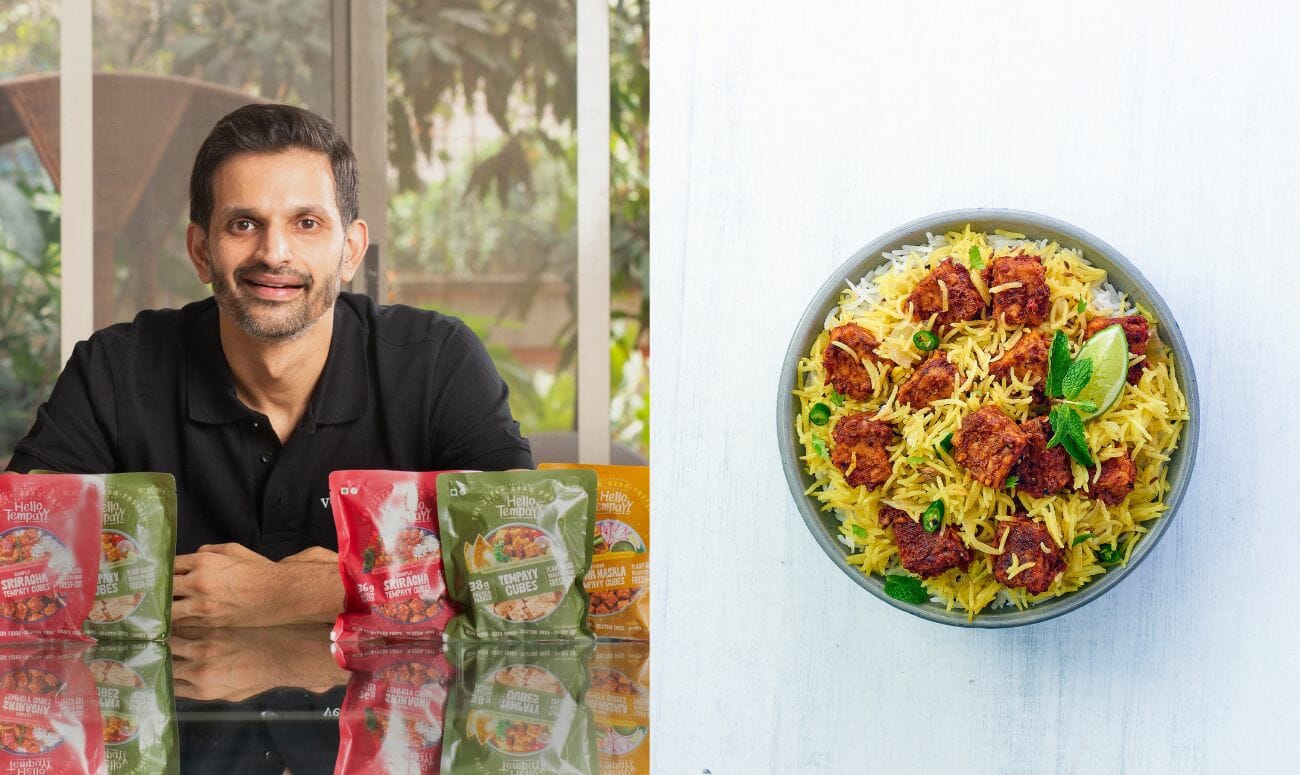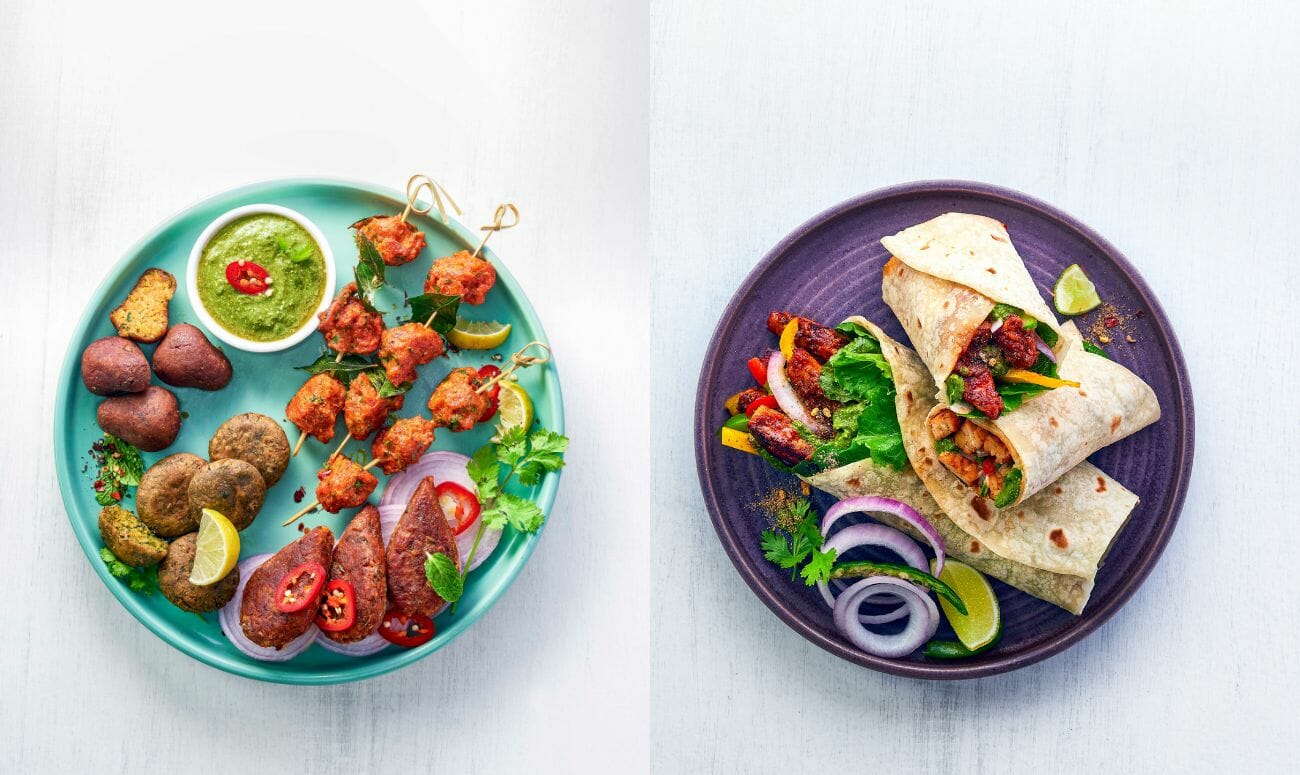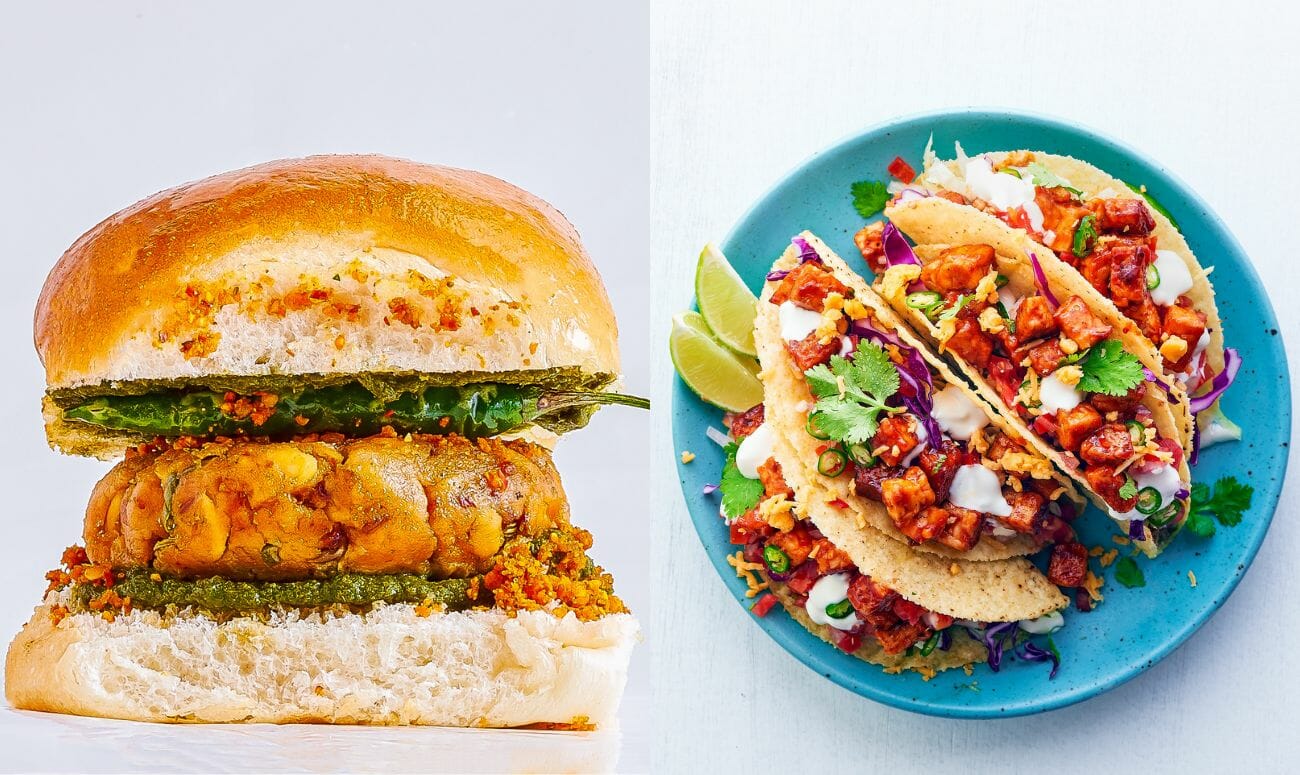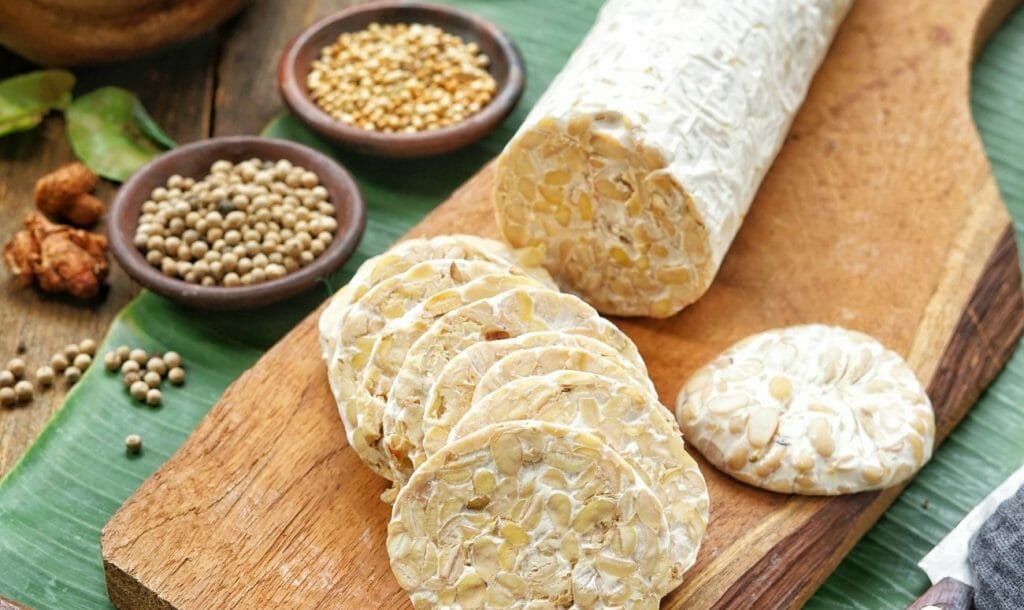Finding a plant-based protein that’s good for your health and doesn’t taste like chalk is a challenge. Yes, plant protein has come a long way from paneer, but modern-day Indians are vying for more choices. And Siddharth Ramasubramanian, founder and CEO of Hello Tempayy India’s first packaged tempeh brand, is taking on this challenge head-on. “We want to win on the emotional quotient of taste as we subsequently start winning on health. And it’s pretty straightforward because the star ingredient in your meal is now high in protein, vegetarian, and uber clean.”
Before starting a plant-based brand that’s embarking on a unique epicurean journey, Siddharth worked for over two decades in the food industry learning the ins and outs of the gastronomic sector and honing his business skill by opening new restaurants and casinos. We caught up with the man of action, who is also the CEO and Director at Vegolution, a Bengaluru-based nutrition startup that effortlessly creates a delicious place for itself in the modern Indian kitchen.
ThinkRight.me (TRM): Could you share with our readers what Hello Tempayy is all about? How did you first get passionate about the sustainable protein space and what motivated you to start the brand?
Siddharth Ramasubramanian (SR): Well, there is the struggle that vegetarians and most vegans have had, which is finding enough variety in their diet that gives them exceptional levels of protein. It’s not that vegetarians don’t have several options. You can have a samosa or even a kachori, there’s really no dearth of food, but with the awareness around protein growing so exponentially, vegetarians and vegans are beginning to really get frustrated around the lack of a healthy choice, which their meat-eating counterparts don’t have to put up with.
And so, I took a trip to India to explore further, and the second thing that became clear to me is that; what was happening in the USA, around plant protein and sustainable protein and the trend happening in India were not the same thing. Merely lifting products that were in the US, dropping them in India, and assuming they were solving the problem is not the right approach.
The real gap in India is for protein amongst vegetarians and vegans. And the protein that they’re looking for doesn’t have to come in the form of something that tastes like meat. It just needs to be something that tastes good, and that offers them a great quality of protein without a lot of preservatives and additives and chemicals.

With this insight, we began to really focus on finding an ingredient that was versatile, that could be used minced, cubed, or even mashed. One that works well in the Indian kitchen, which means it absorbs flavours well while cooking, curries and gravies, and cutlets across cuisines. And something that then delivers the best quality of protein possible, almost as good as animal products. While trying to figure out where we were heading, we came across tempeh that in many ways ticks off most of these boxes.
TRM: So, I just want to understand, when you’re targeting an audience, are you only targeting the people who are primarily vegetarian or also meat-eaters looking for vegetarian alternatives?
SR: I think India has the largest population of vegetarians in the world. Common reporting and statistics will tell you that 70% of India is non-vegetarian and only 30% is vegetarian. This matched with our own research as well, concluding that 65-70% of Indians eat meat quite frequently.
So, the audience size of people whom we call vegetarians who need protein is, to us, the larger opportunity. What we found in talking to people who are non-vegetarian is that in India, the consumption of non-vegetarian food is growing. And there is a percentage of people who are non-vegetarians that are also looking to reduce their meat consumption for health reasons. The number one reason quoted for them is not sustainability but the sustainability of their body in the US as well.
And the reason that consumers also adopt our products in addition to this large vegetarian audience is when they give up meat and take tempeh on board, which is versatile because we make it without any additives or preservatives. It’s a very natural product that gives you almost the same amount of protein as meat.
TRM: As you mentioned meat consumption in India is rising but people are also becoming aware of the impact meat production has on the environment. As a founder of a plant protein brand, why do you think people should switch to plant-based protein?
SR: As a plant-based brand, we tend not to preach about what people should eat, we just tell them what the facts are. Which is if you are consuming a predominantly animal protein diet, there is enough science around the world proving that shifting from an animal protein diet to a more balanced diet, leaning more towards plant-based, is going to lead to better long-term health.

It’s not a zero-sum game where it’s zero or one. Being more plant-based than animal-based will eventually be better for your health, especially your cardiovascular health. So, that’s the number one reason why people need to make that shift of dominance.
The second part is that choosing which vegetarian protein or plant protein to consume makes a big difference. You could be a vegetarian eating pizza or potato chips all day but that doesn’t make you a healthy vegetarian. Making conscious choices is extremely important. It’s very clear that the consumer is so much more educated today about not just bucketing everything into one big bucket called plant-based, even within the world of plant protein.
If you were to look at a tempeh or a tofu, these are much more natural products, depending on how they are made and who makes them. Hello Tempayy uses just three ingredients to make tempeh; beans, water, and a fermentation culture. When we make flavoured choices, they’re all marinades with clean labels like no carbs, no artificial flavourings, no artificial seasonings, and more. The result is this tasty, fresh, clean protein that you can use in your kitchen.
TRM: As you said, the consumer is very well educated now in terms of what is plant-based and what is good for their health. But then as a founder, how are you positioning your product as you approach this kind of commercialization?
SR: We’re not plant-based meat, we’re not plant-based dairy, even though we’re dairy-free, gluten-free, and vegan. We, at our core, are a vegetarian protein ingredient that you can cook in the kitchen in multiple ways. So, Hello Tempayy, in a simple sentence, is for those looking to dial up their protein content through vegetarian food. That’s simply what we are, and our positioning is very clear.
We’re very, very big taste. We want to win on the emotional quotient of taste as we subsequently start winning on health. India as a country is super emotionally connected to its food. Think of memories of masala dosas, tangy kachoris, mouth-watering gulab jamuns, and so much more. We didn’t grow up eating boring, bland food. So, I thought to myself, how do I make our basic ghar ka khanna more exciting? The solution was simple because the star ingredient is now high in protein and uber clean. I’m not asking you to change your food but I’m asking you to evolve and try a new ingredient that also makes the same type of tasty food you usually do except the protein factor just shoots through the roof. That’s clearly our position.
TRM: I agree when you say people are very connected to food in India, especially flavours of the country. Related to that, what trends do you see emerging in the plant-protein industry, and how do you plan on challenging or conquering them?
SR: We are trying our best not to necessarily change what people like to eat, we’re just trying to add to the list of what they would like to eat. Tempeh is essentially a simple product. The difference between tempeh and paneer or tofu is that tempeh absorbs flavour instead of just coating the outside, making that one bite full of flavour. Working around that, we figured, instead of just selling a plain tempeh cube, why don’t we take a range of marinades and masalas and pre-season the cubes?

If you have a look at our website what you’ll see is that we have a range of flavours like tawa masala, peri peri, szechuan chilli, and roasted Chettinad. We wanted to keep it very interesting. The key here is really bringing the flexibility of choice and Indian flavours that excite.
TRM: I understand that the idea of bringing flavour to plant protein is close to your heart, but can you also tell us what previous work experience have you been able to transfer to this plant-based enterprise of yours?
SR: Well, I’ve been working in the restaurant and hotel industry since I was 24, which is over 20 years ago. And after spending almost two decades opening restaurants, working with chefs in hotels and casinos in the USA, and in various parts of the world, you begin to understand and learn over a period of time what makes people excited about food. And it’s the knowledge of being able to read and understand this emotion which is something I learned from my hospitality days that I carried with me here. My background is not in packaged foods, so I’ve surrounded myself with some good, smart people that are from the food business, but ultimately when it comes to what flavour to use, what shape or form to do, and what recipes to educate people with? A lot of it is instinctive and I like to leave it instinctive. You believe in your instincts to satisfy the consumers and it’s this push and pull that I’ve learned over the last couple of decades that we think will allow us to create memorable moments and exciting products.
TRM: Hello Tempayy has worked to bring in a new concept like tempeh that is still not that popular in India, but you’ve brought that touch of tradition through your flavours. What’s been the most challenging part of what you’re doing? Is it creating a new product or is it creating a new market for your product?
SR: In the beginning, when you haven’t launched, creating the product is the biggest challenge. Because you’re constantly testing your product, making it in many ways. And we tested it with 200-300 consumers. They gave us feedback. We made changes. So yes, I think product development was the biggest challenge.
Today I think our biggest challenge is trying every single way to educate people on what tempeh is. What’s the benefit and how can they use it at home? For us, it’s very important to tell our consumers what exactly tempeh is, why does it matter, and how to use it in your kitchen for ultimate satisfaction. And I suspect we will be answering these three questions for the rest of our lives as we build our brand into a household favourite. We think there is no limit to the potential of tasty, healthy food that can fit into the Indian kitchen.
TRM: We’ve already spoken about how you approach this market with the idea that people are going plant-based for their health first, but I believe that sustainability is also a big part and a big mindset change that a lot of people are adopting. And it’s still coming in a big way in India. So as a brand, where do you stand when it comes to sustainability?
SR: We wouldn’t be in this if we didn’t think that Hello Tempayy is going to be a good plant-based choice to help vegetarians but also meat eaters who want to reduce their meat consumption. But yes, when it comes to sustainability, we believe we’re a tasty, healthy product that is also sustainable. Consumers want to buy goods that can deliver a better planet for them tomorrow. And I believe the consciousness around sustainability, especially among young people, is only going to grow.
However, the trade-off that I will consume sustainable products despite not deriving the benefits from them solely because they’re sustainable, is something that to me is either very far away or never going to happen. People buy great products that are also sustainable. People don’t buy sustainable products that are not good.
TRM: Well, sustainability is yes, about being conscious of the planet, but sustainability fundamentally is also about a lifestyle that lets you continue doing what you like without feeling guilty about harming yourself, harming an animal as well as harming the planet.
SR: Exactly and for me, the way to achieve sustainability is through taste because then the customers are open to it. We believe we’re one of the more sustainable food companies that have emerged in India because we don’t use additives or preservatives. We make the food tasty, so you enjoy it, and it doesn’t have any animal products. Therefore, it can seamlessly fit into a sustainable lifestyle.

Whether it’s food or clothing or shoes or cleaning products that are heading towards a sustainable direction, the ones that will emerge are the ones that make great products that fit into their consumers’ lifestyles on an ongoing basis. We aspire to be one of them. In our case, it happens to be the sustainability of taste and health.
TRM: So, what do you think people who are just learning about plant-based alternatives can do to get involved in this movement?
SR: One thing I’ve realized is that the ones who have really decided to eat less meat, more plant-based, or vegetarian food are constantly in hyper-discovery mode. They’re already open, wanting to try things, wanting to learn things, and make the right decision. I think the real question is about how we create this movement of awareness around others, and how we get a more mainstream audience to find this acceptable.
So, the movement really needs to go from being a very tight group of people that are highly focused on it to actually educating a larger audience about taking a balanced approach. It needs to shift from this idea of a very close-knit community orientation where everyone else is doing something bad, while we’re doing something right to actually talking about the real benefits.
TRM: At ThinkRight, we believe that it all begins with the way you think. It starts with being mindful of ourselves and making conscious decisions. Coming to Hello Tempayy, as a plant-based business owner, what does mindful eating mean to you?
SR: I’ll tell you a couple of things that we have talked about today that adhere to me personally. I think it’s all about lifestyle editing. I think lifestyle editing starts from a word that you use that we also use called conscious foodies. We don’t say conscious people but conscious foodies, and the reason we say that is because we don’t want you to lose the foodie in you. We don’t believe people want that to go away. But what you’re doing is you’re becoming conscious.
My wife is a nutritionist and extremely passionate about what is consumed in our household. And she’s educated my kids in a way that they eat good food. They also indulge sometimes but they understand how you can find a balance between the two. It is in the mind and it, therefore, goes from the mind to a level of consciousness. But without losing the emotion of it because then it doesn’t become sustainable, does it? So, that connection is extremely important, and what that leads to is what I call pantry editing. An edit of your lifestyle that results in an edit of your pantry. For example, cutting sugar consumption so you switch from refined sugar to jaggery or reducing carbs in your diet so you swap white rice with red rice.
I always say fix or edit. You’re either fixing something that you’re doing that you know isn’t right, or you’re editing something to make it better. That’s the change we believe in and as a brand, we think we squarely fit in with that.
TRM: My last question to you would be, as a business owner with a job that’s pretty high pressure, can you share with our readers a couple of mindfulness tips that you consciously practice daily?
SR: Of course and I’ll tell you my personal ones. There are three things that I consciously do.
One is that I don’t look at my phone when I wake up in the morning. I spend about 10 minutes reading which a lot of people do. I think that makes a massive difference to the positivity I carry forward in my day, despite what problems I will be facing.
The second thing that I do is spend as much time as I can with my kids. Playing with your kids or being a kid with them and being goofy with them is a great way to escape from the stressors of life. I mean why are we doing all this right? Are we doing it to buy a watch or a new car? Or are we really doing it for them and us? I think this principle centers my perspective.
And the third thing is that I like to surround myself with a great team which I am blessed to have here, a team of young, energetic, fun, mission-oriented people who despite what’s going on in my day, I can always reach out to. I can lean on them, and they lift me up. And I aspire to do the same for them.
Read more: How Can Regular Meditation Improve Your Wellbeing?
Like & Follow ThinkRight.me on Facebook, Instagram, Twitter and Telegram to stay connected.






























